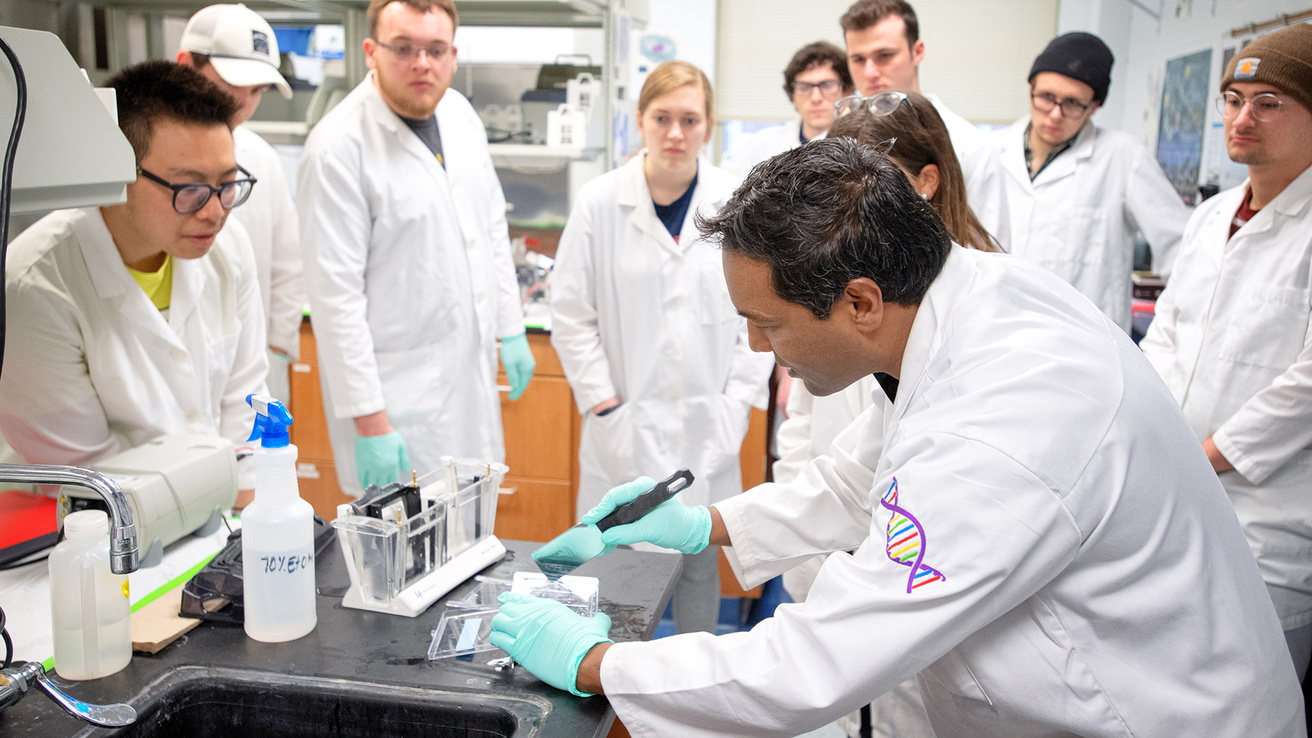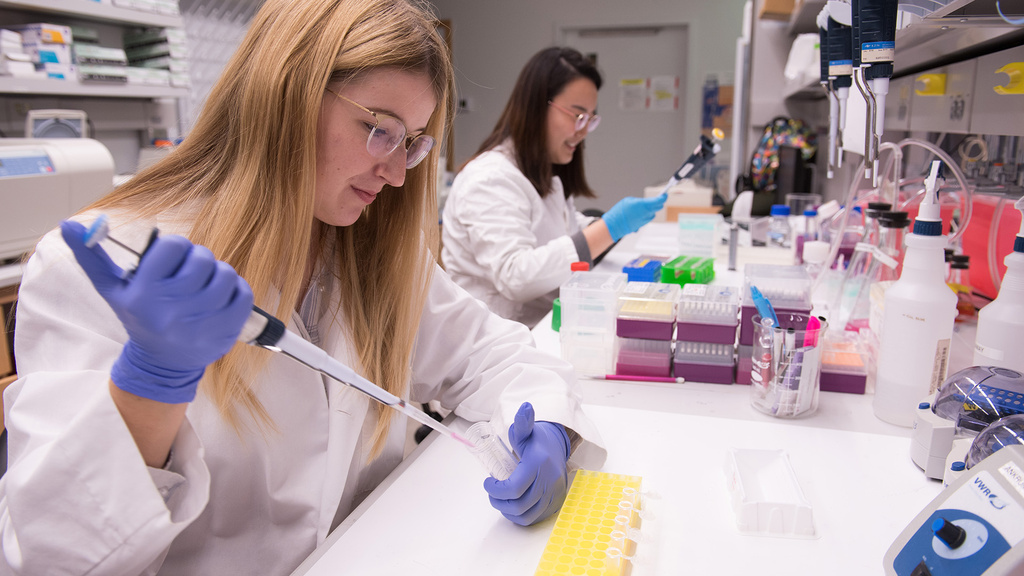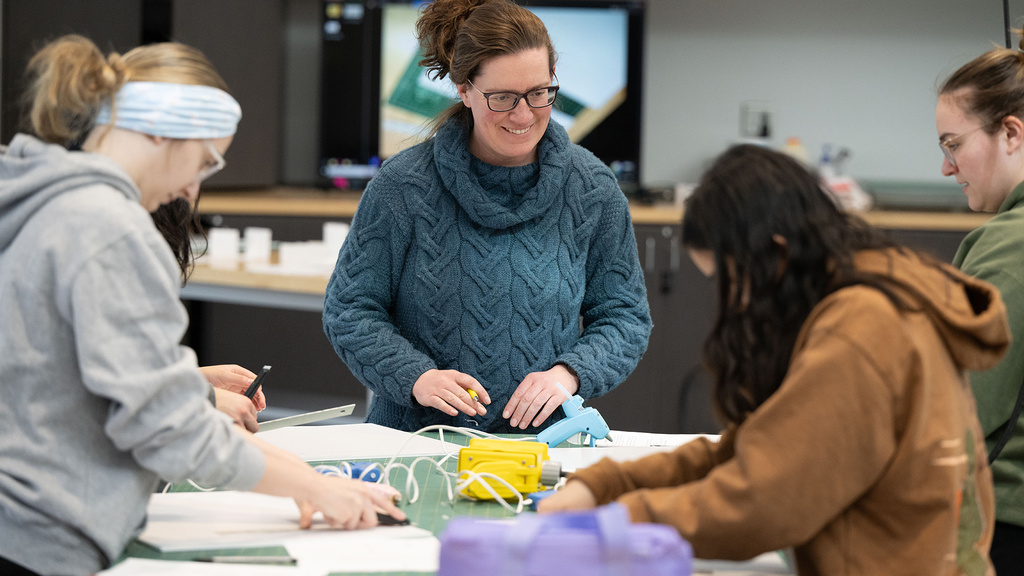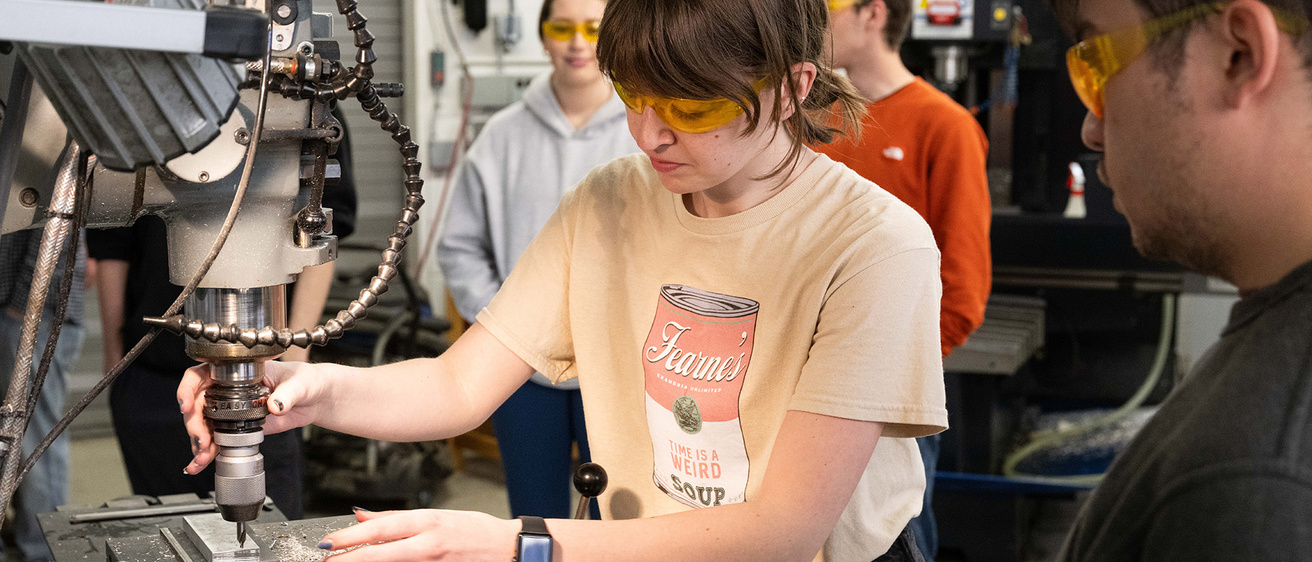Build your academic foundation early, explore your interests, get involved, and stay curious.
Biomedical engineering is one of the most exciting and fast-growing fields in the STEM world. It blends engineering principles with medical sciences to design technologies that improve human health. From artificial organs to advanced imaging equipment, biomedical engineers play a vital role in shaping the future of medicine.
If you are considering this career path, understanding the requirement of a biomedical engineering degree is essential. Your academic preparation can get you in the door at top university programs, and the skills and knowledge you develop in college will set you up for long-term success. Every step — from high school preparation to graduate school applications (if you want to go that far) — builds a foundation for a rewarding professional journey.
Let’s explore the questions below to help you decide whether this major aligns with your career aspirations and personal strengths.
What do you need to do to become a biomedical engineer?
Your journey to becoming a biomedical engineer begins with solid academic preparation in high school. Your first priority should be to build strong foundations in math and science before you apply to degree programs. Biomedical engineering prerequisites typically include coursework in trigonometry, calculus, biology, chemistry, and physics. These courses establish the problem-solving and analytical skills that engineers rely on.
Another way to set yourself up for success: Develop computer programming knowledge — many modern biomedical tools rely on coding, data analysis, and simulation modeling.
Look beyond the books, too, as communication and collaboration skills are equally critical. Biomedical engineers often work in interdisciplinary teams of scientists, doctors, and researchers, and they can find themselves in conversations with patients, too. Being able to talk with confidence and in relatable terms can make a world of difference.
Certain personal traits suit biomedical engineers well. Are you curious? Detail-oriented? Motivated to solve real-world problems that directly impact human lives? This is a great field for you. Developing resilience is also important — some projects can take years of trial, error, and refinement.
These skills and experiences will not only prepare students for admission into a strong BME program but also help them succeed once enrolled.

What are the requirements for biomedical engineering?
As you think about applying for biomedical engineering degree programs, make sure you’ve established a solid STEM-based foundation. Coursework in trigonometry, calculus, physics, chemistry, and biology is essential, as these subjects are the backbone of engineering education.
“In high school, it is important to take as many math and science classes as possible,” says Josh Atcher, director of academic advising and student support in the University of Iowa College of Engineering. “In terms of math, take pre-calculus at the very least, and move on to calculus and go as far into that math sequence as you can.”
When it comes to university admission, students must meet general undergraduate entry requirements, which can include standardized test scores (ACT or SAT); high school transcripts documenting a minimum number of courses in math, science, English, world language, and social studies; and letters of recommendation.
Your grade-point average — and how you’ve done in foundational courses — can play a role in admission as well. For example, when the University of Iowa evaluates GPA for direct admission to the College of Engineering, an emphasis is placed on grades in math and science coursework.
Many engineering programs also look for evidence of strong analytical and critical-thinking skills. Participation in STEM clubs, robotics teams, or science fairs can strengthen applications while demonstrating problem-solving skills.
If you’re researching next steps, be sure to explore detailed biomedical engineering degree requirements for the University of Iowa and other institutions to confirm prerequisites and expectations.
Meeting these qualifications ensures that you will be academically prepared and positioned for long-term success in biomedical engineering — both as a student and as a professional.
What is a good GPA for a biomedical engineer?
Let’s start with your high school GPA: Competitive biomedical engineering programs generally expect a GPA of at least 3.0 (on a four-point scale). Realistically, you’ll want to be closer to 3.5 or greater to put yourself in the best position for admission. The University of Iowa’s incoming biomedical engineering students have an average GPA that approaches 4.0 each year — and other schools might set even higher thresholds.
While GPA is important, admissions committees also value strong test scores, recommendation letters, and evidence of commitment through STEM projects.
Once admitted to a collegiate program, maintaining a solid GPA matters for gaining research assistantships, securing internships, and preparing for graduate study. Don’t panic if your first year of college yields a lower GPA than what you’re used to in high school. This is a big step up, one that can take some adjustment. Seek out your school’s support services: advising staff, tutoring/study sessions, etc.
“I have met with many students who struggle their first year, who aren’t accustomed to their GPA not being as high as what they scored in high school,” says Atcher. “Once they get a handle on time management and adjust their study habits, they usually see the GPA rebound in their sophomore, junior, senior years.”
“Employers will not focus on just your GPA; they’ll notice that you have completed a very difficult biomedical engineering degree.”
And while GPA should not be ignored, you should not consider it the lone measure of success. After all, employers don’t.
“I guarantee this: Students graduate with a biomedical engineering degree and get jobs even though their GPA is not even 3.0,” Atcher says. “The experiences you get in your program, the internships, the research — these things really round out your résumé. Employers will not focus on just your GPA; they’ll notice that you have completed a very difficult biomedical engineering degree.”
Which courses are best in biomedical engineering?
The courses you take will hinge on your program’s curriculum. Many programs will have specific tracks, focus areas, or concentrations — if you already know which direction you want to go, you can choose classes that satisfy that area, be it biomaterials, medical device design, medical imaging, or any other option on offer.
And if you’re not sure? That’s OK. Use the first two years to explore the different areas until you zero in on the path you want to take. Students often gravitate toward a particular focus based on interests they discover through their foundational courses.
“Once you’ve decided on biomedical engineering, keep an open mind,” says Nicole Grosland, associate dean for academic programs and distinguished professor in the University of Iowa College of Engineering. “Think about what excites you. Do you like coding? Mechanics? Biology? These interests will help guide your exploration. Also consider job prospects and whether you want to work in industry, research, or health care.”
“Think about what excites you. Do you like coding? Mechanics? Biology? These interests will help guide your exploration.”
Regardless of program, you’re looking at completing courses in math (yes, there is a lot of math), physics, chemistry, biology, engineering fundamentals, and specialized biomedical courses, along with lab and design experiences. It’s a challenging curriculum — just know that the hard work yields invaluable skills.
“Applying what we learn comes down to being able to synthesize a lot of information to come up with solutions,” says Kelsey Lyons, an Iowa biomedical engineering grad now in med school at Georgetown University. “I got so much practice with that as a biomedical engineer.”
Ultimately, the “best” courses in biomedical engineering are those that align your career goals, whether in research, industry, or health care innovation.

How many years does it take to become a biomedical engineer?
While the answer to the question, “How long does a biomedical engineering degree take?” might seem readily apparent — four years, right? — it’s a fair question to ask for a number of reasons. Perhaps you simply can’t wait to start your career as a biomedical engineer and want to know if it can be done faster. Maybe you are mapping out higher education expenses. Or you might be thinking about going to medical school or specific jobs that require a master's degree or a PhD and want to understand how much extra time goes into earning those qualifications.
Most undergraduate biomedical engineering degree requirements take about four years to complete. However, timelines can shift depending on whether you pursue co-ops, research opportunities, or dual degrees.
If you’re concerned about finishing in a typical amount of time, you should know that support systems are out there. At the University of Iowa, a structured curriculum helps students graduate on time while still gaining valuable experiences that prepare them for careers in this dynamic field.
If you’re considering graduate school, a master’s degree typically requires two additional years of study, while a PhD can take five to seven years, depending on research demands. These advanced degrees are not required for entry-level jobs but can expand career opportunities significantly.
Is there a two-year biomedical engineering degree?
For all intents and purposes, the answer is “not really.”
Yes, associate degrees in engineering or pre-engineering exist. These programs can provide foundational coursework in math, physics, and basic engineering principles. This pathway can be a cost-effective way to begin the journey — emphasis on begin.
An associate degree alone will not prepare you for the specialized and interdisciplinary nature of biomedical engineering careers. Employers and licensing boards require at least a bachelor’s degree for professional engineering roles. Take the next step and transfer to a four-year university to complete a bachelor’s degree in biomedical engineering.
Is BME a hard major?
Full disclosure: It’s not easy!
Biomedical engineering is a challenging undergraduate major, and for good reason. It combines the demands of engineering with the complexity of biological sciences. As a student, you often will manage heavy course loads that include advanced math, multiple lab sciences, and hands-on engineering courses. A single semester may require mastering differential equations, conducting organic chemistry labs, and completing group design projects — all at once. Time management and organization are crucial.
But if you’re interested in the field, you likely welcome a challenge — and you’ll certainly appreciate the reward that comes with it. As a BME graduate, you’ll enter the working world with versatile skills applicable to a wide range of industries, from health care technology, to pharmaceuticals, to government research. The difficulty ensures that you’ll develop resilience and problem-solving skills that are invaluable in professional practice.
Tips for success:
- Build strong study habits early.
- Take advantage of tutoring and academic support services.
- Participate in internships or co-ops for real-world experience.
- Develop networks with faculty and peers for mentorship and collaboration.
Related content

What are the requirements for biomedical engineering?

Which classes are best for biomedical engineering?

